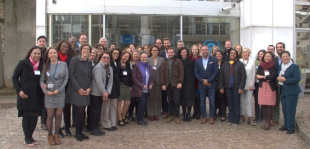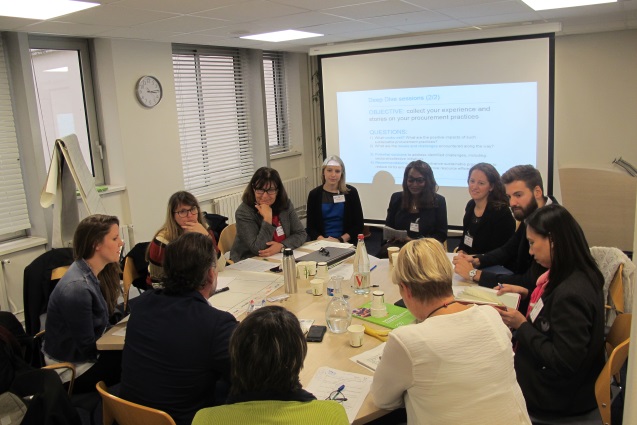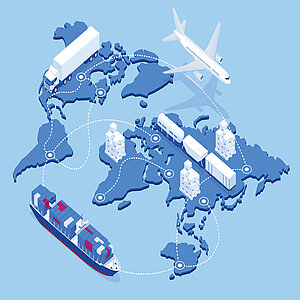Leveraging sustainable procurement to transform tourism

45 procurement and sustainability tourism professionals gather in Paris to discuss how to leverage procurement practices to reduce GHG emissions and improve resource efficiency in the sector.
Sustainable procurement can play a leading role in helping to better manage resources and improve resource efficiency throughout the tourism value chain. By buying more sustainable products and services, corporate buyers can convey a strong market signal and help scale the market for these products and services; and hence drive markets towards more sustainability.
Against this background, the interactive workshop “Leveraging sustainable procurement practices to transform tourism value chains” which took place in the UN Environment office in Paris on 30th October aimed to engage a dialogue with purchasing and sustainability professionals from tourism industry on how to leverage sustainable procurement to reduce GHG emissions and improve resource efficiency.
The workshop was organized within the framework of the UN Environment-led project “Transforming tourism value chains in developing countries and Small Island Developing States to accelerate more resource efficient, low carbon development”, funded by the International Climate Initiative (IKI) of the German Federal Ministry for the Environment, Nature Conservation, and Nuclear Safety, and the One Planet Sustainable Tourism Programme, with the financial support of the French Government. Participants came from the four partner countries of the project, Dominican Republic, Mauritius, Saint Lucia and the Philippines, as well as from several other countries such as USA, United Kingdom, and Germany.
Throughout the day, procurement practitioners from all regions exchanged on their purchasing practices, shared their lessons learned, and discussed on how best to address common challenges and issues.

The discussions focused on four action areas: procurement of food, refrigeration and cooling equipment, single-use plastics and circular procurement practices. Following expert interventions and case studies presentations, participants discussed in smaller groups their procurement practices in the four areas, as well as their successes and encountered challenges. The groups then brainstormed on initiatives and innovative solutions to advance the adoption of sustainable procurement practices in the tourism industry – with the objectives of reducing GHG emissions and improving resource efficiency resulting in the following recommendations:
(1) Education and raising awareness on the potential impacts of sustainable procurement among stakeholders is critical to embark all relevant stakeholders. Knowledge sharing initiatives shall not only address governments, corporate buyers and suppliers but also the guests – in order to engage them in more sustainable behaviours.
(2) Engaging suppliers at an early stage, and other value chain actors is key to identify innovative solutions and business models and stimulate the market to offer more sustainable products and services.
(3) Measuring and reporting on the benefits and impacts of sustainable procurement will enable all value chain actors to understand how such practices can benefit businesses throughout the value chain.
(4) Certifications and consumer information tools have an important role, as they streamline available information, guide consumers and procurers to make better choices and acknowledge progress already made in offering more sustainable options.
The workshop served as a springboard to create a community of practice of procurement professionals in the hospitality industry and offer an exchange platform for the practitioners to share lessons learned and solutions to further advance the uptake of sustainable procurement, and accelerate the shift towards a more resilient, resource efficient development of the tourism sector.
The link has been copied to the clipboard
Contact
IKI Office
Zukunft – Umwelt – Gesellschaft (ZUG) gGmbH
Stresemannstraße 69-71
10963 Berlin





